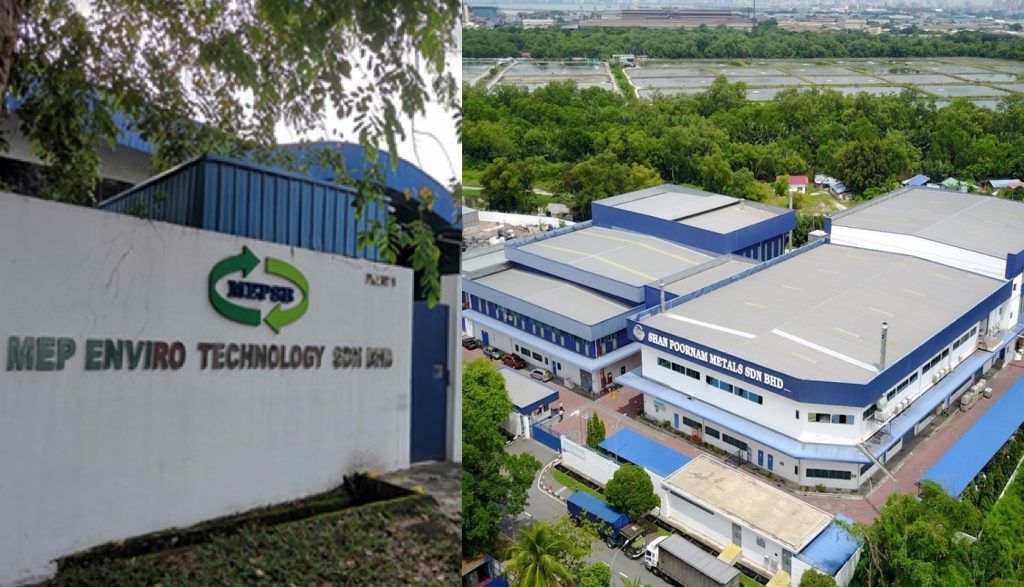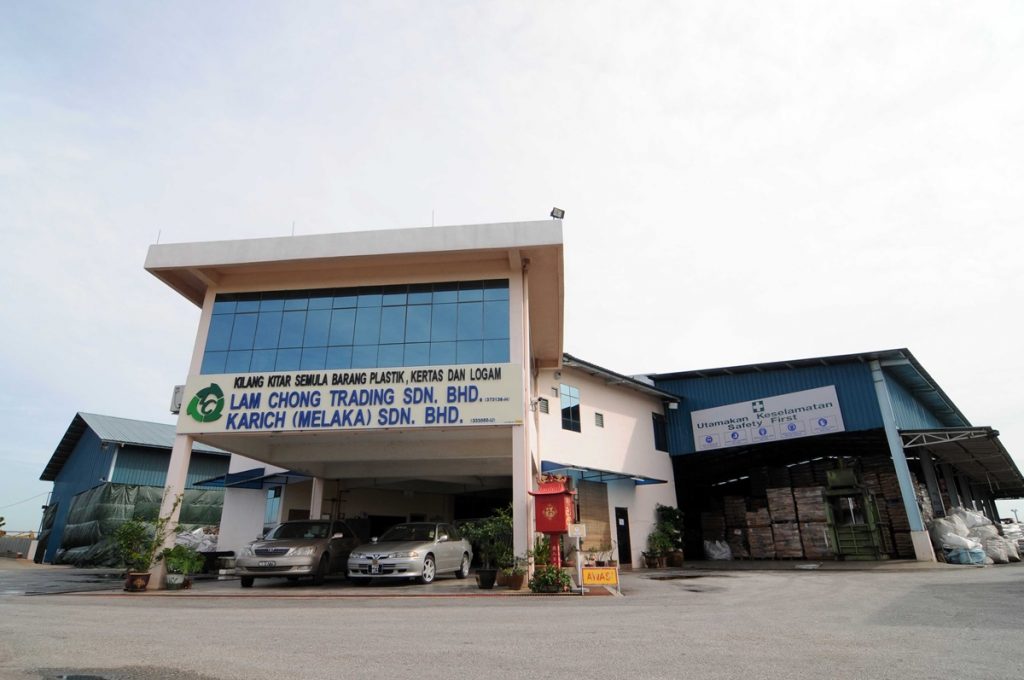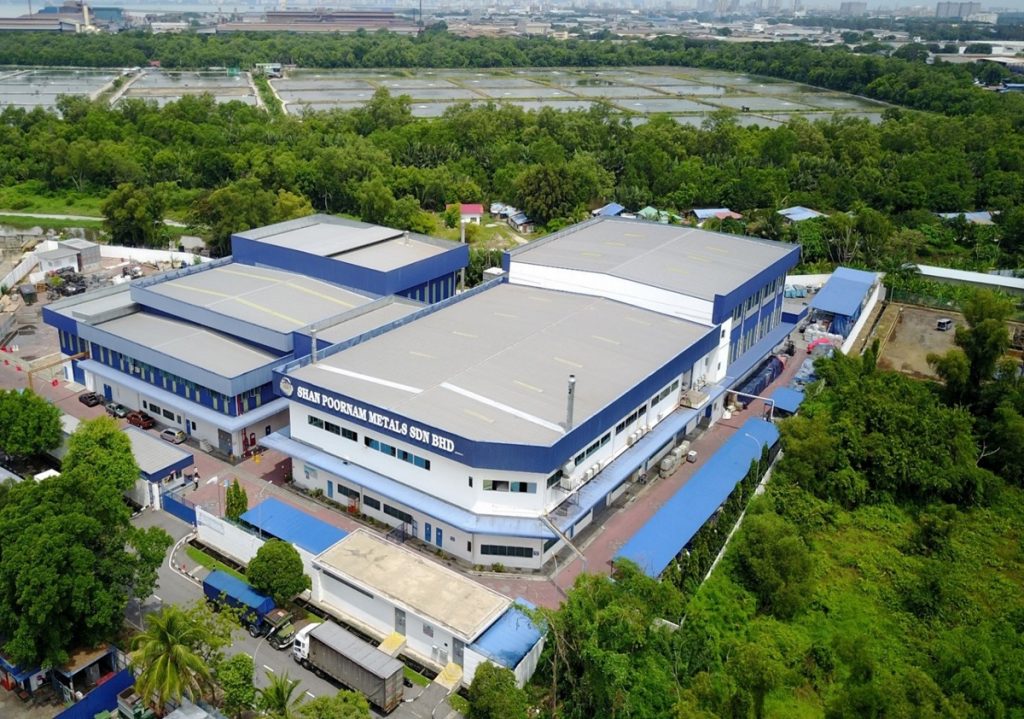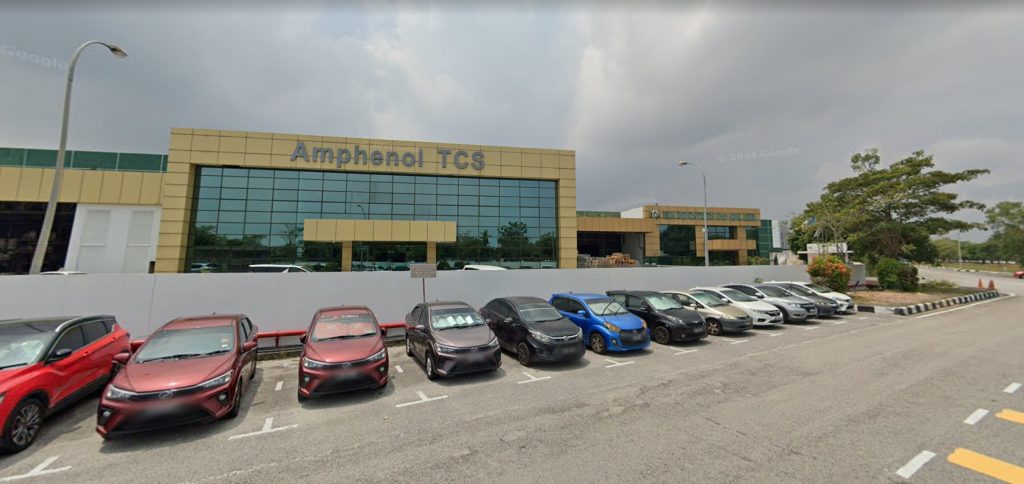
By adamtree
Unethical and Unfair Trade Practices in Southeast Asia’s Semiconductor Recycling Industry
1. Introduction
The global semiconductor industry is increasingly threatened by unethical and unlawful practices in Southeast Asia. In Malaysia, Thailand, and the Philippines, certain recycling and recovery companies operate under the guise of “environmentally friendly” or “green” factories. While projecting legitimacy outwardly, these companies exploit regulatory loopholes, engage in bribery and smuggling, and profit from intellectual property theft.The result is a deeply distorted market environment, where fraudulent recyclers generate profits that surpass those of world-class semiconductor manufacturers. This not only undermines fair competition but also endangers supply chain integrity, intellectual property security, and global trust in certified recycling and recovery systems.
2. Facade of Legitimacy
Many of these operators invest heavily in external appearances—large, modern-looking facilities that give the impression of compliance with international environmental standards. However, behind these facades, several unethical practices occur:-Misclassification of Shipments: Waste and scrap materials are deliberately mislabeled under cheaper customs categories, minimizing declared value and concealing high-value intellectual property.-Internal Manipulation: Staff in production, warehousing, and logistics departments misplace or discard items, which are then diverted to unauthorized warehouses.-Cover-Up Practices: To obscure theft, stolen materials are mixed with low-grade waste, making detection difficult during audits.-Dismissal of Complaints: When discrepancies are discovered, they are explained away as “misunderstandings,” ensuring accountability is avoided.Through these tactics, fraudulent recyclers exploit loopholes to accumulate profits, often exceeding those of legitimate semiconductor companies who comply with global standards.
3. Proxies, Bribery, and Money Laundering
To shield their operations, these companies often use proxies, shell entities, and intermediaries to disguise ownership and responsibility. Bribery is employed at multiple levels—semiconductors security department, Malaysian Customs, and Government Port Officials—to ensure shipments pass unchecked. One notable example is the laundering of illicit profits through consumer goods, such as alcohol brands like “Johnny Walker.” This strategy integrates illicit earnings into legitimate commerce, disguising their criminal origin.Black-Market Diversion-Patented semiconductor chips intended for destruction are diverted, repackaged, and relabeled.-Shipments are routed to Hong Kong and then smuggled into Shenzhen, China, where they are sorted, relabeled with counterfeit packaging, and sold on the black market.-These counterfeit or defective goods are then distributed alongside authentic products, deceiving both traders and end-users.Exploiting Market Demand-China’s soaring demand for advanced semiconductor chips has fueled this illegal recycling ecosystem. Profits from black-market sales are reinvested into new “legitimate-looking” facilities, further expanding their capacity to mislead multinational manufacturers.
Illicit recyclers also attract suppliers by offering above-market prices for electronic waste, undercutting advanced world-refiners and smelters by squeezing these legitimate players out of the market.
4. Corruption and Weakness of Local Governance
The persistence of these practices is enabled by weaknesses in local governments:-Malaysia (Penang, Kedah): Limited enforcement manpower and widespread corruption create an environment where illicit recycling thrives.-Official Complicity: Bribes and political connections ensure protection from meaningful prosecution.-Historical Parallels: The operations echo earlier scandals such as Citiraya Singapore, where profits from reselling patented chips financed his enormous personal wealth.
“Godfathers” of the E-Waste IndustryCertain individuals, described as “godfathers” of Malaysia’s e-waste industry, operate multiple licensed facilities in Malaysia and the Philippines. Their influence reaches into government and corporate sectors.-They diversify illicit profits into alcohol businesses, real estate, and agricultural ventures (such as durian plantations) to launder wealth.-Political ties—such as personal connections to former finance officials in Malaysia—shield their activities.-These operators use slogans of “Total Waste Management” or “green innovation” to disguise misconduct, while quietly enriching themselves through illicit trades.This nexus of criminal enterprise, political corruption, and lax enforcement guarantees that the cycle of exploitation remains unbroken. The so-called Malaysia E-Waste Godfathers will not be brought to justice anytime soon, shielded by bribery and influence. Some attempt to claim legitimacy through legal channels, yet their actions betray otherwise. As one of them once said: There is no need for clarification if nothing wrong has been done. Only the guilty will face the consequences.https://www.facebook.com/share/p/1AV7TDUHV4/ (It is highly ironic that these owners are now following the footsteps of Citiraya Singapore, seemingly driven by their upcoming initial public offering.)
https://www.nst.com.my/news/crime-courts/2025/08/1261692/updated-six-including-chinese-national-arrested-over-e-waste
https://www.nst.com.my/news/crime-courts/2025/03/1184908/authorities-bust-illegal-e-waste-plant-kapar
https://www.freemalaysiatoday.com/category/nation/2025/02/16/marine-police-seize-illegal-e-waste-worth-over-rm71mil
https://www.nst.com.my/news/nation/2025/03/1187499/illegal-e-waste-fight-gathers-pace
https://www.sarawaktribune.com/op-hazard-seizes-rm76-4-mln-of-e-waste-21-nabbed/
https://www.bernama.com/en/news.php?id=2435991
https://www.nst.com.my/news/crime-courts/2025/07/1253407/updated-rm666mil-worth-e-waste-seized-does-op-hazard-raids
https://www.nst.com.my/news/crime-courts/2025/07/1253130/updated-op-metal-28-companies-raided-scrap-metal-e-waste-smuggling
https://www.nst.com.my/news/crime-courts/2025/08/1261692/updated-six-including-chinese-national-arrested-over-e-waste
The authorities have failed to take any action on the above issues.
5. Urgency for International Action
World-class refineries must adopt a zero-tolerance policy toward semi-treated precious metals and scrap sourced from suspicious Southeast Asian recyclers. Accepting such materials inadvertently legitimizes intellectual property theft and counterfeit trade.
The Malaysian Anti-Corruption Commission (MACC) and the Ministry of Law are widely perceived as operating under the direct influence of the Prime Minister. By holding control over both the Prime Minister’s Department and the Ministry of Finance, the Prime Minister consolidates power in a way that undermines independent oversight. Consequently, numerous high-profile cases—such as the MBI scandal and large-scale fraud involving Chinese investors—remain unresolved. The cases linked to the so-called “e-waste godfathers” appear to fall into the same category of deliberate inaction by top officials within these institutions.
Moreover, competition for positions within these key departments is driven less by public service and more by the opportunity to exploit cases for personal gain. This reflects deep systemic flaws within Malaysia’s legal framework. As a result, multinational semiconductor companies operating in Malaysia must adopt strict internal safeguards to prevent the theft of advanced chips and technologies, as the state apparatus cannot be relied upon for adequate protection.
A common pattern of illicit operations:
-Exploitation of Semiconductor Supply Chains: Syndicates bribe officials and leverage fraudulent “licensed environmental technologies” to gain the trust of major semiconductor manufacturers in Singapore, Malaysia, the Philippines, Thailand, Vietnam, and Indonesia. The local internal Top Management of the semiconductor entities only see reports from their subordinates, which resulted in losses in billions in USD by the company. They secure access to advanced patented chips and funnel them through so-called licensed “environmental processing plants” that operate fraudulently. Within these facilities, the most valuable patented chips are discreetly extracted, while the remaining materials containing precious metals are processed using basic recovery methods. As for low-content residues, which require more complicated refining, these are exported under tax-exempt categories—presented as legitimate transactions—thereby evading duties and regulatory scrutiny.
6. Conclusion
The persistence of fraudulent recycling and waste recovery practices in Malaysia, Thailand, and the Philippines undermines global semiconductor supply chains, jeopardizes intellectual property, and corrupts fair competition.These operations flourish by exploiting:-Weak local enforcement,-Legal loopholes,-Bribery and corruption, and-Global demand for high-value semiconductor chips.
Governments in the U.S., Europe, and Japan must:
-Investigate multinational semiconductor companies’ overseas staff and their respective local OEM associates, whose negligence or collusion which will enable theft.
-Pursue legal action against fraudulent recyclers on grounds of intellectual property theft, demanding damages and compensation.
-Impose penalties and taxation on semi-processed materials that fall outside legitimate supply chains within 15 years.
-Mandate return of waste materials to certified facilities in home countries or internationally recognized refineries. Prohibit third-party transshipment, which creates risks of patented chips and technologies being leaked or diverted.
International governments cannot depend solely on enforcement within Southeast Asia, where corruption is deeply entrenched. Instead, they must impose transparency, accountability, and prosecution at the global level. This requires dismantling money-laundering networks in Hong Kong and Singapore, where illicit profits are concealed and reinvested. Without decisive action by refineries, multinational corporations, and international governments, these unethical practices will escalate—further enriching criminal syndicates at the expense of legitimate industry leaders. Over time, world-class refiners and smelters risk bankruptcy, leaving their assets vulnerable to acquisition by illegal operators abroad.





















